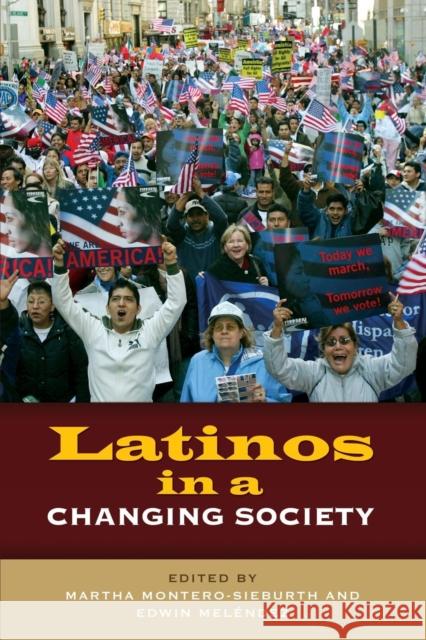Latinos in a Changing Society » książka
Latinos in a Changing Society
ISBN-13: 9780275962340 / Angielski / Miękka / 2007 / 304 str.
Latinos in a Changing Society
ISBN-13: 9780275962340 / Angielski / Miękka / 2007 / 304 str.
(netto: 133,33 VAT: 5%)
Najniższa cena z 30 dni: 132,35
ok. 30 dni roboczych.
Darmowa dostawa!
Given the importance of Latino issues in the current social and economic times, the publication of "Latinos in a Changing Society" is both timely and prescient in its contributions to the current discourse of how Latinos are being influenced by U.S. norms and culture and how Latinos are also affecting U.S. society. This volume contributes to our need for comprehensive analysis of how Latin communities compare and contrast with other underserved groups. It also examines how changes are taking place within specific Latino groups particularly between first and second generation Cubans, returning Puerto Ricans, Dominican poverty, and emergent Mexican leaders in the New England area. The opportunities that Latinos and dominant mainstream interests share are identified in this volume, but so are the many areas in need of change.
In this current atmosphere of anger and suspicion toward immigrants, this volume presents an analytical perspective that is too often absent from politically motivated debates about Latinos and their role in a changing society. Undocumented immigrants are often portrayed as people who come to this country to take advantage of a generous welfare system contributing little to the economic and social development of the country. This volume critically examines issues such as the Latino commitment to labor participation, the ways that Latino parents engage in schools and in their communities, health access and social programs, the policing concerns within the Latino community, the academic adjustments made by Latino college students as well as the educational opportunities that exist for Latinos across the country. Unlike publications that seek to summarize knowledge about the Latino population in the United States, "Latinos in a Changing Society" provides a broader range of insights into the types of policy analysis, research, and public consciousness needed to advance the educational, social, cultural, and political participation and incorporation of Latinos in the new century. This volume critically examines such issues as the disparity in poverty among Latino groups, the lack of access to health services, the Latino commitment to labor participation, the ways that Latino parents engage in schools and in their communities, and the educational dropout rates of Latinos across the country and the underlying causes of those rates. Unlike publications that seek to summarize knowledge about the Latino population in the United States, "Latinos in a Changing Society" provides a broader range of insights into the types of policy analysis, research, and public consciousness needed to advance the educational, social, cultural, and political participation and incorporation of Latinos in the new century.











